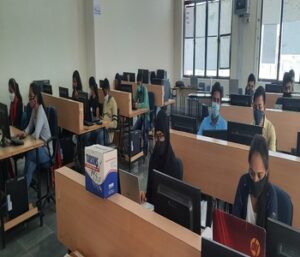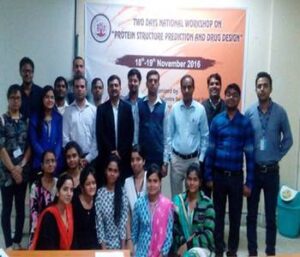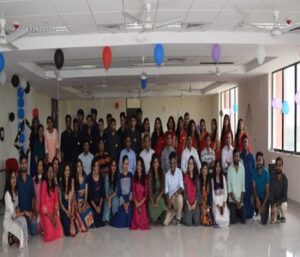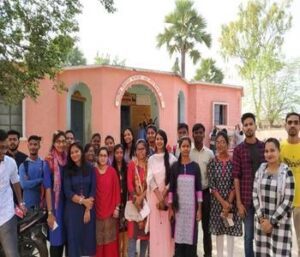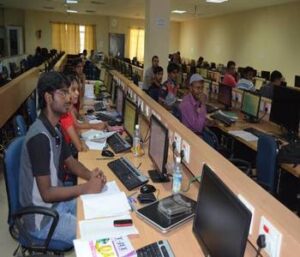







The Department of Life Science was established in 2012. It hosts two programs, Masters and PhD in Life Science. The essence of life science is a wide range of research programs actively run by the enriched faculty members having expertise in diverse fields including biochemical, physiological, genetic, structural and proteomic studies of plant, animal and microbial systems. The department offers a Choice Based Credit System plan of teaching to provide students a set of compulsory subjects along with options to select Elective subjects from within and outside the department to keep pace with the latest research in the field. Our students qualify the UGC-CSIR JRF, DBT JRF, GATE, etc. and get selected to pursue research at other premiere institutes such as IISc, NCBS, IISER, IIT, CDRI , JNU, SAU, BHU - to name a few.
The department is equipped with good technical facilities for basic and advanced research including microscopy, cell and tissue culture and genomic and transcriptomic studies. Apart from academic curriculum, students are encouraged to participate in seminars, conferences, cultural and sports activities.
News and Announcements
Board of Studies (BoS)
BoS is a statutory body for each department/centre, primarily responsible for syllabus design and regular update. As described in the Ordinance section 25.10,
The functions of the Board of Studies shall be:-- To recommend to the School Board, courses of studies offered by the Department/Centre and continue updating syllabus;
- To take all steps in accordance with the provisions of the Regulations about teaching and evaluation of various courses/programmes of the Department/Centre;
- To recommend to the School Board measures for the improvement of teaching and research in the Department/Centre;
- To constitute panels of experts to be considered for appointment as Examiners, Board of Examiners for various courses/academic programmes and M.Phil./Ph.D. thesis representing various specializations of Departments/Centres; and
- To perform such other functions as may be assigned to it by the School Board, the Academic Council, the Executive Council and the Vice-Chancellor.
Notification of Constitution of Board of Studies 
Department Committee (DC)
As enshrined in the Ordinace-26, the Department/Centre Committee (DC/CC) shall consist of the Head of the Department/Centre, as Chairperson ex-officio, and all faculty members of the Department/Centre.
26.2 The Department/Centre Committee shall have the following functions, namely–- To make proposals to the Board of Studies on academic programmes concerning teaching and research, and the creation, specialization and abolition of teaching posts;
- To propose schemes for the maintenance and improvement of the standards of various programmes of study and research of the Department/Centre;
- To apportion the teaching and co-curricular work of the Department/Centre among the teachers thereof and monitor the proper execution thereof;
- To consider and decide on the assignment and utilisation of the space, equipment and other assets of the Department/Centre and other matters of general and academic interest of the Department/Centre;
- To consider and recommend perspectives and major thrust areas for research and to propose research projects to be taken up by the members of the Department/Centre, individually/collectively;
- To review and apprise the SRC/URC with the current status of research in Department/Centre;
- To suggest to SRC/URC norms related to qualifications and research experience of a faculty to be recognized as a research degree supervisor and to constitute Department/Centre Research Degree Committee (DRC/CRC);
- To suggest to University Admission, Teaching and Evaluation Committee (UATEC) on any issue related to admission, teaching, continuous evaluation in courses and students’ assessment of courses, offered by the Department/Centre to improve quality of education.
- To constitute such Committee(s) comprising members of the Department/Centre, and if necessary external experts, for framing and implementation of rules and regulations related to admission, teaching, continuous evaluation, maintenance of students’ records including alumni affairs as well as promotion of research and development; and
- To perform such other functions as may be assigned by the Ordinances or Regulations, or by the Vice- Chancellor/Dean/School Board from time to time.
Department Research Degree Committee (DRDC)
Departmental/Centre Research Degree Committee (DRDC/CRDC) deal with all matters connected with the Ph.D. Programme of the Department and report the matter to the University Research Degree Committee (URDC), as per University Ordinance-33. It consists of the Head of Department/Centre as Chairman and other faculties in the department.
Functions of DRDC/CRDC are as follows:- Allotment of Supervisor, Co-Supervisor, recording reasons for not admitting a candidate.
- Recommendation for extension of time for submission of thesis
- Recommendation to peruse a part of research outside the University
- Approval of the Course Work
- Assessment and Grading in Course Work
- Monitoring the research progress of the candidate
- Approval of Research plan proposal/language
- Sanction of duty leave to the Ph.D. candidate
- Assessment of Ph.D. work through pre-submission seminar
- Maintaining the record of research paper publications of the candidate
- 11 Recommendation of panel of experts for thesis evaluation
- Assessment of revised thesis for satisfactory compliance, if any
- Arrangement of Viva-voce in the absence of the supervisor
- Recommendation to waive the Viva-voce
Notification of Constitution of DRDC 
Research Advisory Committee (RAC)
A Research Advisory Committee (RAC) is constituted for every research scholar admitted in PhD programme. The Committee would guide the research scholar to develop the study design and methodology of research and to To periodically review and assist in the progress of the research work of the research scholar. The committee shall have also have power to recommend the co-supervisor and cancellation of registration
Notification of Constitution of RAC for- PhD students Jan2019 batch

- PhD Jul 2019 pdf

- PhD Sep 2020 pdf

Miscellaneous Department Committees
- Department Library Committee

- Local Purchase Committee

- Time Table & Workload Committee

- Discipline committee
- Student attendance and grievance committee
- Department placement committee
- Alumni committee
- Seminar Committee
- Objectives of the Program: The two year Post Graduate Programme is designed to promote an integrated approach for understanding various fields of biology e.g. evolution, transgenics, immunology, recombinant DNA technology, neurobiology, animal and plant physiology, endocrinology, parasitology etc. This platform nurtures student's thinking to observe, analyze, interpret and utilize the biological techniques and phenomena in basic as well as applied fields. Presentations, assignments, experimental evidences, field observation, data analysis and computer applications in biology are few methodologies which are being applied for teaching.
- Program Outcomes: The curriculum is designed so as to:
- Enhance fundamental and advanced knowledge in the field of biological sciences
- Provide opportunities for students to undertake scholarly activities through involvement in dissertation, field research, internships and discussion sessions
- Strengthen qualifications for taking up independent career in teaching and research
- Eligibility : Graduation in Biological Sciences
- Intake : 45
- Objectives of the Program: The prime objective of our doctorate program is to inculcate a sense of independent research aptitude. Along with acquisition of academic skills students are mentored to formulate/draft their ideas and acquire skills for experimental verification of the same. We train young researchers to keep pace with global research and explore untouched research problems. The focus of the entire curriculum remains on systematic understanding of a subject and hands on experience of the techniques/skills relevant to their field of study.
- Program Outcomes: Students are trained to:
- Convert their ideas into a well formulated hypothesis
- Devise a research plan with clearly stated objectives
- Conduct relevant and conclusive experiments to verify the hypothesis
- Produce statistically precise results
- Make original and significant contributions to the scientific knowledge
- Satisfy standards associated with national and international peer-reviewed publications
- Develop capability of integrating ethical aspects of professional practice with ability to extrapolate research to welfare of the society
- Eligibility: Masters in Biological Sciences
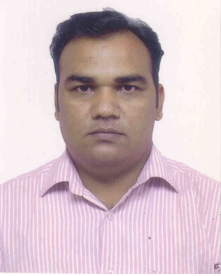
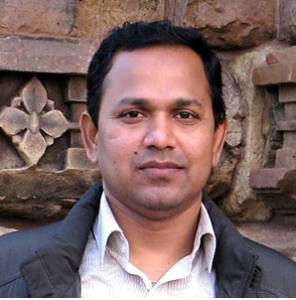
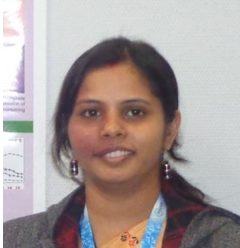
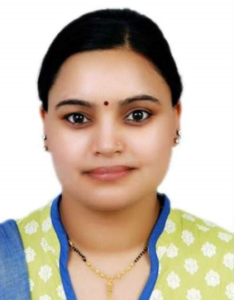
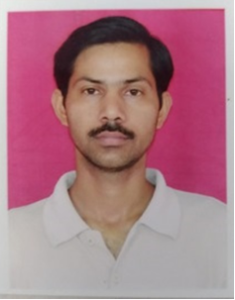


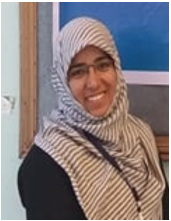
- Lab facility
- Research Lab :
- List of instruments in the Lab
- Lab staffs and their contact Dr. Navin Kumar Singh, PhD
Life Science laboratory is equipped with various facilities of modern biology like Animal and Plant Tissue Culture, Proteomics, Recombinant DNA Technology and offers instrumentation facilities including Automated Shakers, Inverted and Upright Microscope, Fluorescence Microscope, Laminar Flow, UV-Visible Spectrophotometer, Autoclave, refrigerated Centrifuge, -46˚C and -80˚C Deep Fridge, Cryocan, Millipore Water Purification System, PCR, Real Time PCR, FPLC and 2D Electrophoresis System.
The curriculum is designed so as to:
| Facilities | Specification | Quantity |
|---|---|---|
| Micro centrifuge, 5417 | EPPENDORFF | 1 |
| Heating Block | EPPENDORFF | 1 |
| Mixer Grinder | Twister | 1 |
| Microwave Oven | SAMSUNG | 1 |
| I-mark Micro plate Absorbance Reader (Elisa Reader) | BIO-RAD | 1 |
| Weighing Balance | WENGER | 1 |
| Ice Flaker | LABMAN | 1 |
| Centrifuge with Hanging Bucket, 5702R | EPPENDORFF | 1 |
| Refrigerator (4 degree) | SAMSUNG | 02 |
| 2D Gel Electrophoresis Unit | BIO-RAD | 1 |
| Transilluminator | GENO BIOSCIENCES | 1 |
| Pipette Controller | Twister | 1 |
| Mixer Grinder | G-Biosciences | 1 |
| Gel Document System | SYNOPTICS | 1 |
| Human Physiology Data Acquisition System | AD INSTRUMENTS | 1 |
| Magnetic stirrer cum hot plate | IKA | 2 |
| Vortex | AGILE | 2 |
| Bench top refrigerated high speed Centrifuge, X3R | THERMO SCIENTIFIC | 1 |
| Homogenizer with controller | REMI | 1 |
| Voltage Stabilizer 2 KVA | ELTEK | 3 |
| Voltage Stabilizer 4 KVA | ELTEK | 2 |
| Voltage Stabilizer 5 KVA | ELTEK Sen & Pandit | 7 |
| Voltage Stabilizer 7.5 KVA | Sen & Pandit | 01 |
| Low Temperature Circulatory Water Bath | BT-BL-710 GENO BIOSCIENCES | 2 |
| Benchtop Circulatory Water Bath | BT-BL-720 GENO BIOSCIENCES | 1 |
| Gradient Thermal Cycler & Online UPS | PEQ LAB | 2 |
| pH Meter Handy | EUTECH | 2 |
| Power Pack Universal with Agarose gel Tank (01) and Western Blot Apparatus (2) | BIORAD | 2 |
| Shaker Incubator | THERMO SCIENTIFIC | 1 |
| Vacuum Pump | TARSON | 1 |
| Inverted Research Microscope with Computer System | NIKON TOWA OPTICS | 1 |
| CO2 Incubator | THERMO SCIENTIFIC | 1 |
| Gel Rocker | GENO BIOSCIENCE | 1 |
| IRGA Portable Photosynthesis System | ELRON INSTRUMENT | 1 |
| Myspec Nanodrop with laptop Printer | SIGMA SVI | 1 |
| Autoclave | ACME (Stovetop) Waiometra | 1 |
| UV-Vis Spectrophotometer with computer | PERKIN ELMER | |
| Milli-Q System | MERCK MILLIPORE | 1 |
| Plant Growth Chamber | LABTECH | 1 |
| Akta Purifier (FPLC) with computer system & Online UPS | GE HEALTHCARE BIOSCIENCE | 1 |
| RO Water Purifier | KENT | 1 |
| Glucometer Digital | PSAW | 04 |
| Binocular Microscope | Olympus | 04 |
| Trinocular Microscope | Olympus | 01 |
| 20 Deep Freezer | (RFV-340)REMI VESTFROST | 04 |
| -80 Deep Freezer | (ULT 360) REMI | 01 |
| Double Distillation Unit (2.5 ltr) | RIVIERA | 01 |
| Laminar Air Flow | SELWIN | 01 |
| Multichannel Pipettes | Eppendorf | 02 |
| Micropipettes (2-20 ul) | (2-20 ul) PSAW | 04 |
| Micropipettes (20-200 ul) | (20-200 ul) PSAW | 04 |
| Micropipettes (100 - 1000 ul) | (100-1000 ul) PSAW | 04 |
| MMicropipettes (01-10 ul) | (1-10 ul) PSAW | 04 |
| Mixer Grinder | Twister | 1 |
| Micropipettes (0.5-5 ml) | (0.5-5 ml) PSAW | 04 |
| Sphygmomanometer | PSAW | 02 |
| Analytical Balance | WENSAR (PSAW) | 01 |
| Digital pH Meter | PSAW | 01 |
| Tissue Culture Racks Size: 7’.1” Size: 7’.6” | Size: 7’.1” AM Biotech Size: 7’.6” AM Biotech | 03 03 |
| Monocular Microscope | Magnus (Olympus) Sl.No. 019950, 019954, 017923, 017929, 019942 | 05 |
| Boiling Water Bath | Chandra Enterprises, Patna | 01 |
| Table Lamp | Comat | 05 |
| Analytical Balance | Mettler Toledo (Cole Parmer) | 01 |
| Benchtop centrifuge, 5427R | Eppendorff | 01 |
| Benchtop pH Meter | Hanna | 01 |
| Flame Photometer | SYSTRONICS | 01 |
| Microtome | Biobase | 01 |
| Liquid Nitrogen tank 35 LTR | CRYOCAN (BA-35) | 01 |
| Thermal Cycler, Prima 96 | Himedia | 01 |
| Real Time PCR with Transblot | Bio-Rad | 01 |
| 20 Refrigerator | Blue Star | 01 |
| Refrigerator 195 ltr., HRD-1955 | Haier | 01 |
Senior Technical Assistant
Email: navin_kumar@cub.ac.in
Contact No. : 6287145595
Mr. Santosh Kumar
Laboratory Assistant
Email: santoshprasad@cub.ac.in
Contact No.: 9234769460
- Project
- Dr. Vijay Kr. Singh PI, SERB (2016-20; 14 Lakh) project entitled Identification of molecular species that have potential to compete with insulin for receptor binding
- Dr. Durg Vijay Singh PI UGC (2013-15; 6 lacs) project entitled Design and development of inhibitors against Nucleotide Binding Domain of P-gp for enhancing Bioavailability and reversal of multidrug resistance
- Dr. Durg Vijay Singh, PI,DST Kiran (2014-15; 3.26 lacs) project entitled Design and Development of herbicide against carboxyl-terminal (CT) domain of ACCase of P.minor to regain resistivity in resistance biotypes
- Dr. Durg Vijay Singh PI DST (2016-19; 35 lacs) project entitled Design and Development of Herbicide to Regain Sensitivity in Phalaris Minor Resistant Biotypes
- Dr. Durg Vijay Singh PI, ICMR (2020-ongoing; 50 lacs) project entitled Rational approach of antibiotic discovery and development against, a staphylococcus aureus serine threonine phosphatases (Stp) protein (Project ID RP-60).
- Dr. Ajay Kr. Singh, PI Dr. Anil Kumar (Co-PI) ICMR (2019-Ongoig; 35 lacs) project entitled In-Silico study on potent inhibitors against iron overload and cardiac arrhythmia in beta thalassemia (RP-56).
- Dr. Vijay Kr. Singh Dr. K.K. Ojha (Co-PI) ICMR (2020-Ongoig; 20 lacs) project entitled Gene interaction landscape inferred from expression data to search for diabetes effector molecules (Ref. 2020-3854)
- Book: Pandey J.&Vishwakarma. R. (2014). Women Empowerment and Gender Equality Development. 978-93-80310-78-7, New Generation Press, New Delhi
Department of Life Science
- Present Head
| HOD Name | Period | Contact | Image |
|---|---|---|---|
| Dr. Ram Pratap Singh | 2020-Onwards | Contact : +91 - +91 -7598112621 Email: hod.lsc@cusb.ac.in |
 |
- Former Heads
- Lorem Ipsum (2020-2021)
- Lorem Ipsum (2020-2021)
- Lorem Ipsum (2020-2021)
| Office Staff | Email Id | Contact | Image |
|---|---|---|---|
| Mr. Manish Kumar, Upper Division Clerk | manishraj@cub.ac.in | +91-7488225815 |

